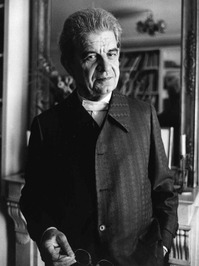Giving What You Don't Have To Someone Who Doesn't Want It
Philosopher Jacques Lacan said that love is giving what you don’t have to someone who doesn’t want it. If I were to create a non-nonsensical statement that I think a stereotypical philosopher would say, this is just about perfect.
What the heck does this mean? How can I give what I don’t have? And how is it loving to give this non-possession to someone who does not want it? I have been handed many flyers only to resent the one giving me what I now consider a scrap of trash to throw away. I did not want it and yet I am holding it. I don’t think that is love.
I have not read Lacan. I am not that smart. However, this definition of love is right in line with the Gospel.
First of all, that which we do not have goes by another name. It is what we lack. Thus, giving what you lack to someone is a practice of vulnerability and trust. When I am vulnerable to someone and give my lack (lack of confidence or lack of “having it all together” for instance) the other person is offered what I don’t have.
Now, when this other person is offered what I don’t have the other person probably was not looking for it. I cannot imagine that people on dating sites are putting in their profile, “I am looking for someone who is broken and lacking in the following ways…” Of course not. When we set out to find a partner, we are typically looking for someone who “completes us” or “fills us” or adds to our life in any number of ways. We look for someone who is the “total package”. We are not looking for lack.
And yet, when we meet someone who offers what were not looking for we have a choice. We can reject it - we were not looking for this to begin with - or we can receive it. In receiving the other person’s lack or brokenness we receive the very thing we did not think we wanted.
This is love.
We see this in the Christian communion. Jesus offers his broken body, his lack, to the world. In turn we are given a choice. Do we receive this broken body of the Christ or do we reject it? Christ offers us not his strength or wholeness, but his weakness and brokenness.
Some find it difficult to imagine that Christ was weak or broken or lacking in anything. I get it, who wants to worship a weak God?
However, this the the point. We are looking for a strong God, we are not looking for a weak God.
By offering the very thing we did not think we want (a weak, broken and crucified God) we encounter what love looks and feels like. When we reject the weakness and brokenness of God, then we reject the very gift of God to us.
Just as God, who needs nothing, receives our lack and brokenness as the way to love us. God responds in kind by offering God’s brokenness.
The question is not is God broken or lacking, but what will you and I choose to do with the brokenness of God offered to us?
